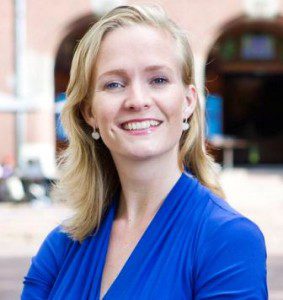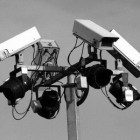Pervasive and personal: Observations on free speech online
[vc_row][vc_column][vc_column_text]
 Technology has linked much of the world together, but in its complexity and ubiquity, technology also has deeply personal qualities. It has helped us build relationships and has become a part of our daily lives, something we carry in our pockets wherever we go. This duality of tech and particularly the Internet—its ability to be vast yet intimate—has enabled people to express themselves in unique ways, but also brought with it some serious challenges. Where open channels into each other’s lives exist, the spread of harassment, abuse and vitriol can be equally pervasive and personal.
Technology has linked much of the world together, but in its complexity and ubiquity, technology also has deeply personal qualities. It has helped us build relationships and has become a part of our daily lives, something we carry in our pockets wherever we go. This duality of tech and particularly the Internet—its ability to be vast yet intimate—has enabled people to express themselves in unique ways, but also brought with it some serious challenges. Where open channels into each other’s lives exist, the spread of harassment, abuse and vitriol can be equally pervasive and personal.
In this next installment of the Vera List Center’s “Freedom of Speech: A Curriculum for Studies into Darkness” series, seminar participants will turn from considerations of freedom of speech in a U.S. context (a particular focus of Seminar 1) to how freedom of expression is exercised—and curtailed—in our complex online sphere. By observing the ability of women to safely and securely speak out online, we will bring to the fore the contradictions of the Internet, a seemingly borderless space that is used by people living within borders, a tool that has equalizing potential but is constructed through the hegemony that is Silicon Valley.
The focus will be on women, since increasingly research and testimony are showing what many women have long known, that the Internet is not an equal space. The online landscape bears more risks for women than for men, and gets riskier depending on other aspects of her identity, such as race or religion, or whether she works as a journalist or in another public facing job. As a result of the scale of this type of abuse, some women have resorted to self-censorship or have disengaged from online platforms altogether. More often than not, self-censorship is a direct consequence of such attacks. However, at times, can it also be a proactive form of resilience? Women, civil society and activists have responded to the challenges in ingenious and alternative ways of community building and solidarity—shared by many minorities.
In an era where technology is quickly becoming everything, the consequences for women being unable to access the Internet safely and securely, without facing misogynist abuse, cannot be overstated. Technology, and the Internet specifically, is not neutral, and how tech is built and managed has a direct impact on women’s right to freedom of expression as well as equality in society as a whole.[/vc_column_text][vc_custom_heading text=”Participants” font_container=”tag:h3|text_align:left” use_theme_fonts=”yes”][vc_row_inner][vc_column_inner width=”1/4″][vc_single_image image=”104939″ img_size=”full” add_caption=”yes”][/vc_column_inner][vc_column_inner width=”1/4″][vc_single_image image=”104941″ img_size=”full” add_caption=”yes”][/vc_column_inner][vc_column_inner width=”1/4″][vc_single_image image=”104940″ img_size=”full” add_caption=”yes”][/vc_column_inner][vc_column_inner width=”1/4″][vc_single_image image=”104942″ img_size=”full” add_caption=”yes”][/vc_column_inner][/vc_row_inner][vc_custom_heading text=”Moderator” font_container=”tag:h3|text_align:left” use_theme_fonts=”yes”][vc_row_inner][vc_column_inner width=”1/4″][vc_single_image image=”104943″ img_size=”full” add_caption=”yes”][/vc_column_inner][vc_column_inner width=”1/4″][/vc_column_inner][vc_column_inner width=”1/4″][/vc_column_inner][vc_column_inner width=”1/4″][/vc_column_inner][/vc_row_inner][vc_column_text]
When: Monday 11 FEB 2019 6:30PM-8:30PM EST
Where: The New School, Theresa Lang Community Center, 55 West 13th Street, 2nd floor, New York
Tickets: Free via Eventbrite. Registration required. On registration, participants will receive preparatory reading material.
[/vc_column_text][vc_row_inner][vc_column_inner width=”1/4″][vc_icon icon_fontawesome=”fa fa-file-pdf-o” color=”black” size=”xl” link=”url:http%3A%2F%2Fwww.veralistcenter.org%2Fmedia%2Ffiles%2Ffae89f1f7283b80c3c88e6c0abe8c139.pdf|||”][/vc_column_inner][vc_column_inner width=”3/4″][vc_column_text]
Suggested reading: Pervasive and personal
[/vc_column_text][/vc_column_inner][/vc_row_inner][vc_column_text]The seminar series Freedom of Speech. A Curriculum for Studies into Darkness is organized by the Vera List Center for Art and Politics as part of the center’s 2018–2020 curatorial focus If Art Is Politics. It is directed by Carin Kuoni, Director/Chief Curator, Vera List Center, and Laura Raicovich with assistance by Gabriela López Dena. Partner organisations for the seminars are ARTICLE 19; the National Coalition Against Censorship; New York Peace Institute; and Weeksville Heritage Center. [/vc_column_text][/vc_column][/vc_row][vc_row][vc_column][/vc_column][/vc_row]

 In a world where digital policy is written by politicians who barely know how to send an email, Marietje Schaake is a breath of fresh air. Marta Cooper meets the pioneering Dutch MEP
In a world where digital policy is written by politicians who barely know how to send an email, Marietje Schaake is a breath of fresh air. Marta Cooper meets the pioneering Dutch MEP